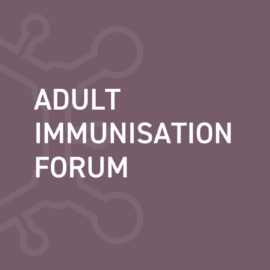Forum aims
This one day event continues to build on the aims:
- to better understand the burden of vaccine preventable diseases in adults
- to build an awareness of the challenges and strategies for improved vaccination in adults
- to hear the latest developments in vaccine programs for adults
- to consider ways of improving knowledge about immunisation best practice.
The forum will be of particular interest to health professionals, immunisation specialists, policy makers and anyone else working on the front line of public health.
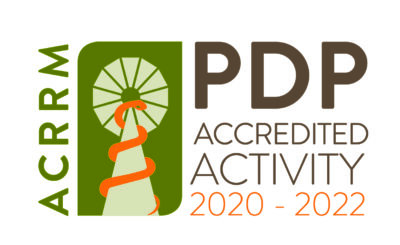
This event is accredited for 7.5 hours with the Australian College of Rural and Remote Medicine (ACRRM). Activity ID: 26413
Details
Held: Monday 22nd August 2022
Where: A virtual event
Chaired by: Professor Robert Booy
Registrations closed.
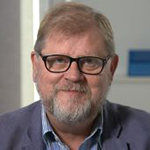
Robert Booy is Honorary Professor of Paediatrics and Child Health at the University of Sydney. From 2005 to 2019 he held Senior roles at NCIRS. He is a medical graduate of the University of Queensland (1984), trained in paediatrics at the Royal Children’s Hospital in Brisbane and has held a range of positions in the UK.
Professor Booy’s research interests extend from understanding the genetic basis of susceptibility to, and severity of, infectious diseases, especially influenza, RSV and invasive disease caused by encapsulated organisms; the clinical, public health and social burden of these diseases; and means by which to prevent or control serious infections through vaccines, drugs and non-pharmaceutical measures.
Over the past 20 years, Professor Booy has been increasingly recognised as an expert in the respiratory virus field, supervising many studies addressing the burden and prevention of influenza disease in children and adults in the UK, Australia and among Muslim pilgrims to Saudi Arabia.
In addition he has led intervention studies with new vaccines, new vaccine delivery methods and alternate methods for preventing disease and transmission such as antivirals and personal protective equipment. Professor Robert Booy is a Director at the Immunisation Coalition.
Session 1: COVID-19
COVID vaccination in children
- Presented by Robert Booy
Adult COVID advocacy & families
- Presented by Paul Griffin
Experience in the Long COVID Unit
- Presented by Lou Irving
Aged care: Flu & COVID epidemiology & prevention
- Presented by Michael Murray
Q&A session
Professor Robert Booy – see above for bio.
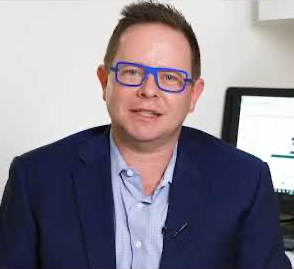 An Infectious Diseases Physician and Microbiologist, Dr Paul Griffin was appointed as the Director of Infectious Diseases at Mater Health Services in 2013. In addition, Dr Griffin continues appointments as Principal Investigator at Q-Pharm, as Visiting Scientist/Honorary Research Fellow at Mater Medical Research Institute and Queensland Institute of Medical Research, and also as Senior Lecturer at the University of Queensland.
An Infectious Diseases Physician and Microbiologist, Dr Paul Griffin was appointed as the Director of Infectious Diseases at Mater Health Services in 2013. In addition, Dr Griffin continues appointments as Principal Investigator at Q-Pharm, as Visiting Scientist/Honorary Research Fellow at Mater Medical Research Institute and Queensland Institute of Medical Research, and also as Senior Lecturer at the University of Queensland.
Dr Paul Griffin’s primary research interests include clinical trials in the field of infectious diseases particularly malaria human challenge and transmission blocking studies, as well as the detection of antibiotic resistance particularly VRE by mass spectrometry in the clinical microbiology laboratory.
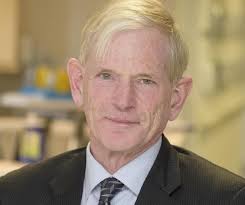 Associate Professor Lou Irving is a Respiratory Physician at the Peter MacCallum Cancer Centre, the Director of Respiratory and Sleep Medicine and Director of Clinical Training at the Royal Melbourne Hospital. Associate Professor Irving has clinical, teaching and research interests in lung cancer, advanced bronchoscopy and COPD and has published over 250 scientific papers.
Associate Professor Lou Irving is a Respiratory Physician at the Peter MacCallum Cancer Centre, the Director of Respiratory and Sleep Medicine and Director of Clinical Training at the Royal Melbourne Hospital. Associate Professor Irving has clinical, teaching and research interests in lung cancer, advanced bronchoscopy and COPD and has published over 250 scientific papers.
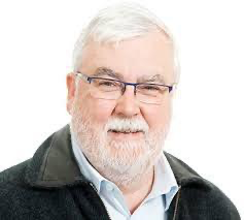
As the Divisional Medical Director of Continued Care, Head of Geriatric Medicine and Medical Lead of Patient Flow at Austin Health, Associate Professor Michael Murray AM brings extensive experience in the health, education and the aged care industry.
With nearly 30 years involvement in geriatric care, Michael’s career highlights include extensive work in continence, public health and public policy, as well as working in education and service development. In 2019 Michael was appointed as the interim Chief Clinical Advisor to the first Aged Care Quality and Safety Commissioner. Michael holds several board and committee positions with a variety of health and educational institutions Michael has been the National Chairperson of the Continence Foundation of Australia for several years, prior to which he was the Victorian State President. Michael is the president of the National Ageing Research Institute. Michael was recently appointed as the Geriatrician Lead to the Victorian Aged Care Response Centre (VACRC) for Covid-19.
Session 2: Modes of Immunisation
Different flu vaccines
- Presented by Paul Van Buynder
Influenza and cardiac disease
- Presented by Tim Tan
Passive immunisation for Alzheimer’s disease
- Presented by Colin Masters
New research in influenza/COVID – diabetes, obesity
- Presented by Kirsty Short
Q&A session

Prof Paul Van Buynder is a Public Health Physician and past Chairman of the Immunisation Coalition. He is a professor in the School of Medicine at Griffith University in Queensland. He has held senior public health positions in a number of Australian states, in two Canadian jurisdictions and at the Centre for Infections in the UK. He has held personal appointments on sub-committees of National Immunisation Technical Advisory Committees in three continents. Paul is a reviewer of over 10 journals and has over 60 referred book chapters and articles.
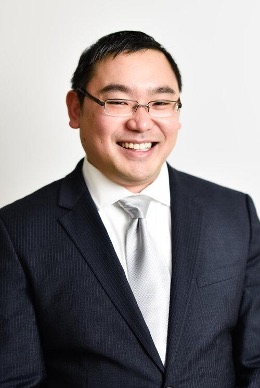 Dr Tan is a Consultant Cardiologist at Westmead Hospital and Blacktown Hospital, Conjoint Professor at the Blacktown Clinical School, Western University, Clinical Associate Professor at the University of Sydney and Adjunct Associate Professor at the School of Medical Sciences at the University of New South Wales. Dr Tan graduated from Sydney University and completed a PhD in Cell Signalling at the Children’s Medical Research Institute, University of Sydney. He underwent basic physician and specialty cardiology training at Westmead Hospital and went on to complete sub-specialty training in Cardiac Imaging at the Massachusetts General Hospital and Harvard Medical School where he worked with some of the world’s top imaging experts. His special interest is in cardiac imaging (echocardiography, cardiac CT, and cardiac MRI) with a niche interest in using novel techniques in various imaging modalities to gain mechanistic insights into cardiac pathology and to track progression of cardiac disease. Dr Tan is also passionate about research and has contributed to a number of publications. Dr Tan has a keen interest in the education of junior medical staff and is currently a mentor and supervisor to many basic physician trainees and cardiology advanced trainees.
Dr Tan is a Consultant Cardiologist at Westmead Hospital and Blacktown Hospital, Conjoint Professor at the Blacktown Clinical School, Western University, Clinical Associate Professor at the University of Sydney and Adjunct Associate Professor at the School of Medical Sciences at the University of New South Wales. Dr Tan graduated from Sydney University and completed a PhD in Cell Signalling at the Children’s Medical Research Institute, University of Sydney. He underwent basic physician and specialty cardiology training at Westmead Hospital and went on to complete sub-specialty training in Cardiac Imaging at the Massachusetts General Hospital and Harvard Medical School where he worked with some of the world’s top imaging experts. His special interest is in cardiac imaging (echocardiography, cardiac CT, and cardiac MRI) with a niche interest in using novel techniques in various imaging modalities to gain mechanistic insights into cardiac pathology and to track progression of cardiac disease. Dr Tan is also passionate about research and has contributed to a number of publications. Dr Tan has a keen interest in the education of junior medical staff and is currently a mentor and supervisor to many basic physician trainees and cardiology advanced trainees.
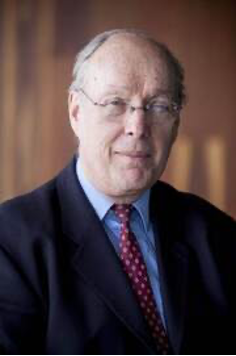 Professor Colin Masters’ major research achievements include isolating and characterising elements of the primary pathway causing Alzheimer’s disease. His findings are now the subject of intense world-wide research for diagnosis and drug discovery. Professor Masters’ current studies focus on the genetic and environmental factors that contribute to Alzheimer’s disease. His collaborations with industry – he was a founding director of Prana Biotechnology Limited and consultant to Merck, BayerSchering Pharma – are directed at identifying compounds that can inhibit the production or aggregation of toxic proteins in the brain. Professor Masters has won many prizes and awards including the Potamkin Prize (American Academy of Neurology 1990), the Max Planck Award (von Humboldt Foundation 1991), Alzheimer Award (University of Munich 1998) and then the Florey Medal in 2002. He also went on to win the Lennox K Black Award (Thomas Jefferson University 2006).
Professor Colin Masters’ major research achievements include isolating and characterising elements of the primary pathway causing Alzheimer’s disease. His findings are now the subject of intense world-wide research for diagnosis and drug discovery. Professor Masters’ current studies focus on the genetic and environmental factors that contribute to Alzheimer’s disease. His collaborations with industry – he was a founding director of Prana Biotechnology Limited and consultant to Merck, BayerSchering Pharma – are directed at identifying compounds that can inhibit the production or aggregation of toxic proteins in the brain. Professor Masters has won many prizes and awards including the Potamkin Prize (American Academy of Neurology 1990), the Max Planck Award (von Humboldt Foundation 1991), Alzheimer Award (University of Munich 1998) and then the Florey Medal in 2002. He also went on to win the Lennox K Black Award (Thomas Jefferson University 2006).
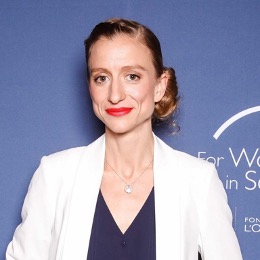 Dr. Kirsty Short is an Australia Research Council DECRA research fellow in the School of Chemistry and Molecular Biosciences at the University of Queensland in Brisbane Australia. She completed a PhD in 2013 at the Department of Microbiology and Immunology at the University of Melbourne. In 2013 she was also awarded an NHMRC CJ Martin Early Career Fellowship to go to the Netherlands to work in the Department of Virosciences at Erasmus Medical Centre. She returned to Australia at the end of 2015 and in 2017 she established her independent research group at the University of Queensland. She works on many different aspects of influenza virus pathogenesis, understanding how the flu virus affects different animal species, investigating the role of the immune system in severe flu infections and the interactions between the flu and chronic medical conditions such as diabetes and obesity.
Dr. Kirsty Short is an Australia Research Council DECRA research fellow in the School of Chemistry and Molecular Biosciences at the University of Queensland in Brisbane Australia. She completed a PhD in 2013 at the Department of Microbiology and Immunology at the University of Melbourne. In 2013 she was also awarded an NHMRC CJ Martin Early Career Fellowship to go to the Netherlands to work in the Department of Virosciences at Erasmus Medical Centre. She returned to Australia at the end of 2015 and in 2017 she established her independent research group at the University of Queensland. She works on many different aspects of influenza virus pathogenesis, understanding how the flu virus affects different animal species, investigating the role of the immune system in severe flu infections and the interactions between the flu and chronic medical conditions such as diabetes and obesity.
Session 3: Other Infectious Diseases
Herpes zoster
- Presented by Tony Cunningham
Meningococcal disease update
- Presented by Robert Booy
Trends in evolving Pneumococcal serotypes
- Presented by Monica Nation
Pertussis in children & adults
- Presented by Nick Wood
Q&A session
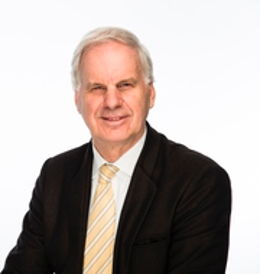 Professor Anthony (Tony) Cunningham, AO,FAHMS is an infectious diseases physician, clinical virologist and scientist, internationally renowned for his research on the immunobiology of HIV and herpesviruses, his work on vaccine and microbicide development, and as an antivirals expert. He is the Director of the Australian Centre for HIV and Hepatitis Virology Research (ACH2), a Commonwealth Government-funded institute that aims to combat the impact of HIV and hepatitis in Australia and the Asia-Pacific region by bringing together basic researchers with translational scientists and physicians.
Professor Anthony (Tony) Cunningham, AO,FAHMS is an infectious diseases physician, clinical virologist and scientist, internationally renowned for his research on the immunobiology of HIV and herpesviruses, his work on vaccine and microbicide development, and as an antivirals expert. He is the Director of the Australian Centre for HIV and Hepatitis Virology Research (ACH2), a Commonwealth Government-funded institute that aims to combat the impact of HIV and hepatitis in Australia and the Asia-Pacific region by bringing together basic researchers with translational scientists and physicians.
Professor Robert Booy – see above for bio.
 Monica is an epidemiologist and microbiologist in the Translational Microbiology Group at Murdoch Children’s Research Institute. Monica completed a Master of Epidemiology (with Distinction) at The University of Melbourne in 2018. She has a particular interest in pneumococcal vaccine impact evaluation, vaccine schedule optimisation, and the impact that COVID-19 has had on respiratory infections and disease.
Monica is an epidemiologist and microbiologist in the Translational Microbiology Group at Murdoch Children’s Research Institute. Monica completed a Master of Epidemiology (with Distinction) at The University of Melbourne in 2018. She has a particular interest in pneumococcal vaccine impact evaluation, vaccine schedule optimisation, and the impact that COVID-19 has had on respiratory infections and disease.
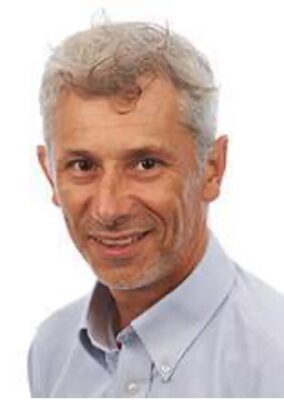 Nick is a staff specialist general paediatrician and Associate Professor and Sub-Dean (Postgraduate Research) in the Discipline of Child and Adolescent Health at the University of Sydney. He holds anNHMRC Career Development Fellowship. He leads the NSW Immunisation Specialist Service and coordinates the Immunisation Adverse Events Clinic at The Children’s Hospital at Westmead. He is interested in maternal and neonatal immunisation, as well as research into vaccine safety and the genetics of adverse events.
Nick is a staff specialist general paediatrician and Associate Professor and Sub-Dean (Postgraduate Research) in the Discipline of Child and Adolescent Health at the University of Sydney. He holds anNHMRC Career Development Fellowship. He leads the NSW Immunisation Specialist Service and coordinates the Immunisation Adverse Events Clinic at The Children’s Hospital at Westmead. He is interested in maternal and neonatal immunisation, as well as research into vaccine safety and the genetics of adverse events.
Session 4: Evolving Vaccines
Mosquito-borne diseases (incl JE)
- Presented by Cameron Webb
Travel vaccines
- Presented by Simon Thatcher
New technologies in vaccines
- Presented by Paul Griffin
Vaccines for cancer
- Presented by Kristen Radford
Other presentations to be confirmed
Q&A session
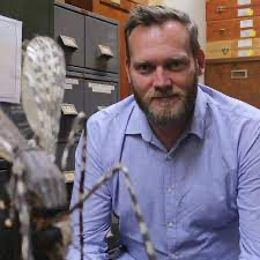 A/Prof Cameron Webb has over 25 years experience in mosquito and mosquito-borne disease research and management through work with NSW Health Pathology and University of Sydney. Cameron provides advice to local, state, and federal government agencies on mosquito control and surveillance programs as well as public health interventions to reduce the pest and public health threats to the community.
A/Prof Cameron Webb has over 25 years experience in mosquito and mosquito-borne disease research and management through work with NSW Health Pathology and University of Sydney. Cameron provides advice to local, state, and federal government agencies on mosquito control and surveillance programs as well as public health interventions to reduce the pest and public health threats to the community.
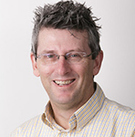
After graduating from the University of Queensland in 1985, Dr Thatcher worked for two years at Royal Brisbane Hospital and one year at Greenslopes Private Hospital in Brisbane. As part of this training, he worked in the rural and remote communities of Mount Isa and Doomadgee. Upon returning to Brisbane, Dr Thatcher worked in general practice while completing an honours degree in information technology, which is a personal interest of his. After moving to the Gold Coast, Dr Thatcher joined Health HQ in 2001 and completed his Certificate in Travel Health with the International Society of Travel Medicine. He has a special interest in travel medicine, but also enjoys seeing general practice patients and managing their infinite variety of health issues.
Professor Paul Griffin – see above for bio.
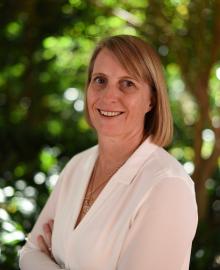
Professor Kristen Radford leads the Cancer Immunotherapies Group at Mater Research, University of Queensland in the Translational Research Institute in Brisbane Australia. She completed her PhD in melanoma biology at the University of Newcastle, NSW followed by a postdoc at Cancer Research UK in London. She then joined the newly established Mater Research Institute where she developed a dendritic cell vaccine that was translated to a first-in-man clinical trial for metastatic prostate cancer. Her group first characterised the rare human cDC1 (CD141+) dendritic cell subtype that is required for inducing antitumor and antiviral immune responses. She is now pursuing the therapeutic potential of this discovery with international funding to develop vaccines that specifically target human cDC1 in vivo. Prof Radford is also Director of the Australian Humanised Mouse Program. “Humanised” mice are immunodeficient mice reconstituted with human hematopoietic stem cells that develop functioning human immune cells, including dendritic cells. These are emerging next-generation models for human immuno-oncology and are valuable models for understanding human dendritic cell biology and evaluating new human cancer immunotherapies
Session 5: New Strategies
Monkeypox
- Presented by Kasha Singh
Risk communications (CoRiCal)
- Presented by Carissa Bonner
Aids for kids vaccination – Virtual Reality headsets for distraction
- Presented by Allya Makhijani
Q&A Session
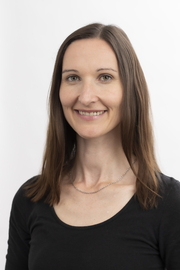
Dr Bonner is a behavioural scientist who applies evidence-based decision making and risk communication strategies to address problems in public health. Her research is focused on improving the implementation of disease prevention guidelines in primary care using ehealth interventions, and developing patient decision aids across a range of health topics. She has published 47 peer-reviewed papers (h-index 17; >11,000 citations), including leading international journals in medicine (e.g. Lancet, BMJ, MJA), ehealth (e.g. JMIR) and behavioural science (e.g. Health Psychology, Implementation Science). Her current NHMRC/Heart Foundation Fellowship is focused on implementing new ehealth tools to support GPs’ use of cardiovascular disease prevention guidelines.
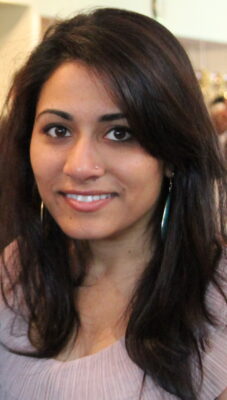
Dr Allya Makhijani is a senior paediatric registrar at the Royal Children’s Hospital in Melbourne completing her training in general paediatrics and paediatric emergency. Allya has worked extensively in acute paediatrics, neonatology and emergency over the last 8 years. She also has a keen interest in education and mentoring of junior medical officers and students. She currently teaches paediatric clinical skills to medical students as a University of Melbourne Clinical Teaching Fellow. She has also completed a Diploma of Clinical Education and Masters of Paediatrics. Her research interest currently focuses on improving procedural experiences for children especially those with neurodiverse and needle phobic background.
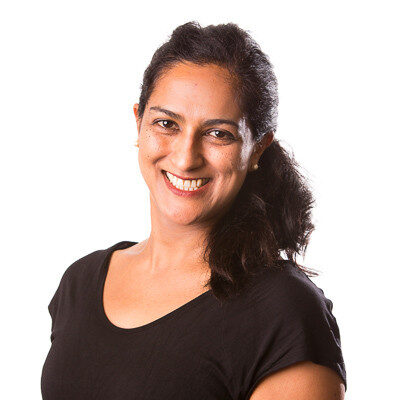 Dr Kasha Singh is an infectious diseases physician with a wide range of interests including public and refugee health and translational research. Dr Singh worked in the UK for 10 years, completing a HIV fellowship at Chelsea and Westminster Foundation Trust in London. Whilst based in London, Dr Singh was also involved in running international clinical trials of tuberculosis treatment with the MRCP/UCL, including capacity development and education. Dr Singh is interested in persistent infections and the public health impact and management of infectious diseases, particularly HIV, hepatitis B and tuberculosis.
Dr Kasha Singh is an infectious diseases physician with a wide range of interests including public and refugee health and translational research. Dr Singh worked in the UK for 10 years, completing a HIV fellowship at Chelsea and Westminster Foundation Trust in London. Whilst based in London, Dr Singh was also involved in running international clinical trials of tuberculosis treatment with the MRCP/UCL, including capacity development and education. Dr Singh is interested in persistent infections and the public health impact and management of infectious diseases, particularly HIV, hepatitis B and tuberculosis.
We would like to thank the following companies for supporting this event:

